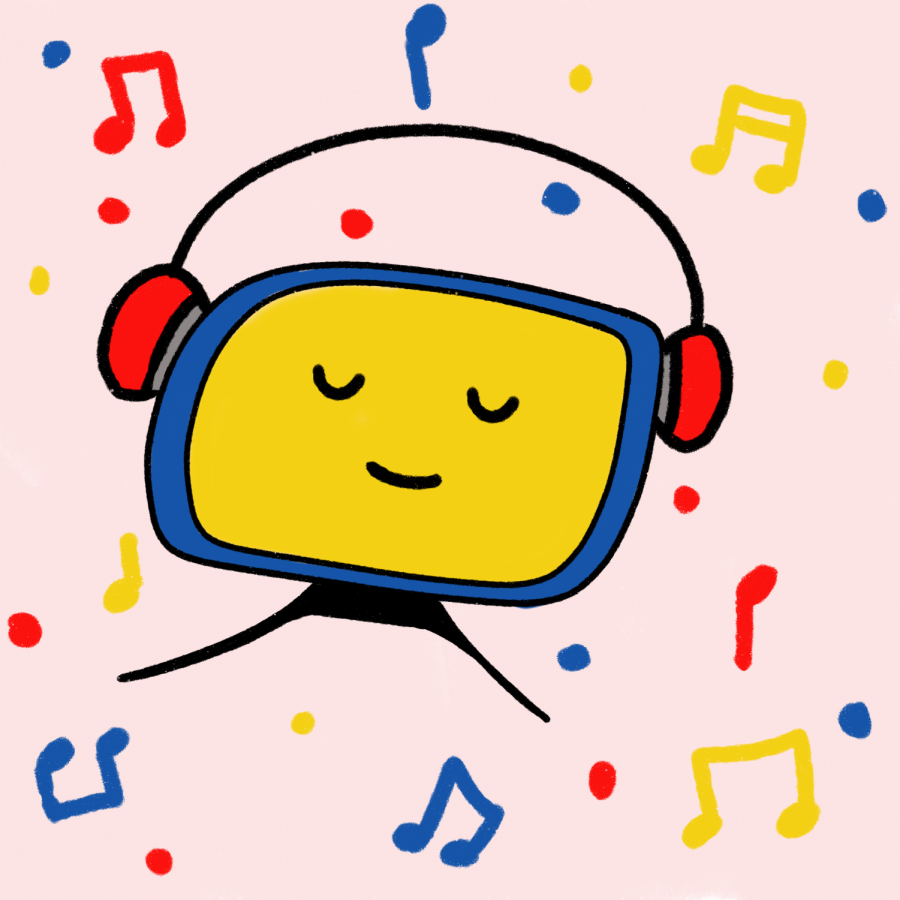Opinion | Listening to sad music isn’t bad for you, it’s actually healthy
November 15, 2021
I am a firm believer in the power of sad — melancholy, somber and pensive — music. My Spotify contains an ample amount of sad playlists — I’ve even gone so far as to call myself “the goddess of sad playlists.” There’s one composed of songs that gives me a despairing yet nostalgic feeling and another with songs that make me shiver about unhealthy relationships and mistrust.
Whenever I’m sad, I put on the most relevant playlist and let the tears — if they come — flow and flow. Countless people have told me that I should stop and that listening to sad music just makes you feel worse. Personally, I couldn’t disagree more.
Sad music does not — as many people believe — make you feel worse. In actuality, it can help you feel better. It makes logical sense that, when you’re sad, you would feel better by changing your mood. Thus people suggest putting on some upbeat tunes to lift you up and push the negative thoughts to the back of your mind. However, this doesn’t work as well as most might think.
Rather than helping uplift your mood, listening to happy music when you’re sad can remind you how distant you are from those positive feelings. While you might want to latch on to the positive vibes and make them your own, humans aren’t built for this. Our emotional health doesn’t benefit from forcing the bad thoughts away, but instead from allowing ourselves to confront these thoughts. While we shouldn’t let ourselves sink blindly into the depression abyss, there’s nothing wrong with sitting on the edge and just dipping our feet in.
Listening to music that matches your current state of mind builds connection. When we’re feeling down, sad or just plain depressed, it often feels as though no one can understand what we’re going through. Sadness is lonely. When we listen to a song that contains instrumentals or lyrics that apply to our own emotions, we are brought out of our mental isolation to enter a shared space.
Empathy — or the ability to understand what others are going through — is crucial to building emotional health. Sad songs create empathy, as well as a sense of belonging, as we relate to a genre, an artist or simply the universe when we realize that someone else has gone through what we’re going through. When you put on Melodrama or Blue, suddenly sadness doesn’t have to be so lonely.
Sad music also has a high aesthetic value. Slow, sorrowful music is generally the most beautiful type of music because it contains colorful, intense and ample meaning. It’s theorized by researchers Annemieke J.M. Van den Tol and Jane Edwards that the more beautiful the music, the easier it is for listeners to concentrate on it and become distracted from their own troubled thoughts. This has also been described as mood regulation, where songs with high perceived aesthetic value can enhance one’s mood, or push the listener to feel their motions to greater depths. Listening to sad music that matches your mood is thus a healthy mechanism for confronting your emotions and allowing yourself to be vulnerable in order to overcome your sadness.
Sad music also has a tendency to trigger nostalgia or memories. As humans, we tend to associate strong emotions with things such as places and songs. We often select music that reminds us of a past event or person in our life. When we listen to these songs, our brains retrieve those memories and enhance the solemn feelings of the past. This can intensify our current emotions and provide bittersweet feelings as we reflect.
While listening to somber songs that remind us of upsetting events can make us feel more upset in the moment, it allows us to become in tune with our emotions and confront the events that have made us who we are. We gain a better understanding of our emotions.
Listening to sad music allows for emotional expression and consequential hormonal release. Society teaches us that being sad is bad, and that we should do our best to hide our negative emotions and put on a happy face. In reality, expressing our emotions through a relatable movie, show or song enables us to channel our emotions in a healthy manner. Because engaging with these media doesn’t have real-life implications, our emotions become vicarious in nature. We disassociate from tangible threats while releasing pent-up emotions.
This connects to the health benefits of expressing our emotions. Actions that engage with sadness, such as crying, release hormones such as oxytocin and endorphins that prepare our brains for fighting some perceived trauma. However, since no traumatic event occurs, when we are using these media, we’re left with a calming mix of hormones that create an overall sense of peace. We are one with our emotions. We are thinking more clearly about our lives, our current state of mind and how we can move forward.
Listening to sad music is great for your mental and emotional health. Permitting yourself to experience — rather than resist — your negative emotions releases the harmful thoughts and replaces them with feelings of empathy, nostalgia and tranquility. Putting on some sad tunes connects your mind to other people, other situations and personal memories.
Next time you’re feeling anxious or depressed, don’t push it away and force a smile. Instead, give in to the emotions and listen to some sad, nostalgic and relatable music that can help you feel better. Don’t hide the bad feelings — let it all out.
Sarah Liez writes primarily about gender issues and social phenomena. Write to her at [email protected].








